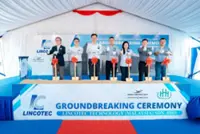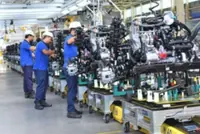SEOUL: South Korea is forecast to overtake China in spending on advanced chipmaking equipment next year, a sign of US export controls reshaping global supply chains for semiconductors.
South Korea will likely increase its investment in fab equipment by 41.5% to US$21bil (RM93bil) in 2024, while China logs only a 2% increase to US$16.6bil (RM73.4bil), according to data from Semiconductor Equipment and Materials International (SEMI), a global semiconductor association based in the United States.





